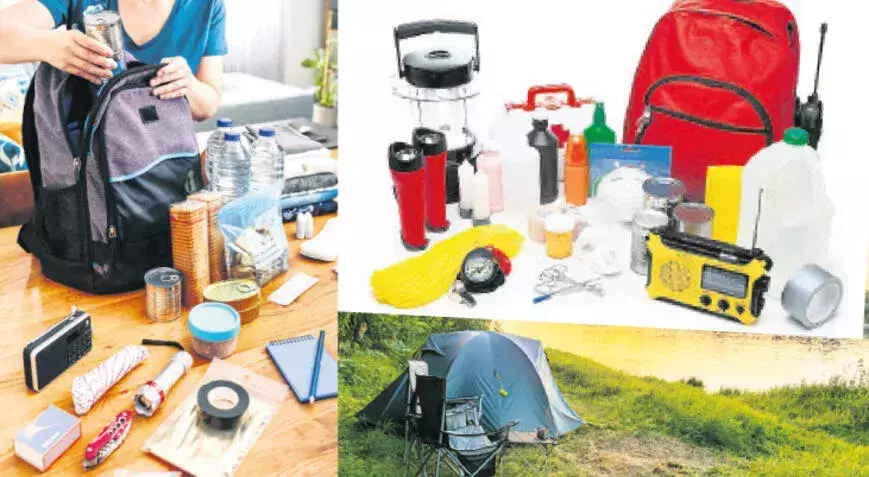
Following the deadly earthquakes that rattled Türkiye’s south and concerns over potential quakes in the future rise, fear and panic have engulfed the country, as sales of go-bags and emergency supplies, including power banks, tents and thermal clothing, have soared significantly.
After the earthquakes centered in Kahramanmaraş, demand for go-bags has considerably increased across Türkiye, while whistle and flashlight sales have also skyrocketed.
Some emergency bag and first aid kit manufacturers have started to experience product shortages, stating that not only the bags are important but also the supplies that will go inside.
“We used to procure materials like whistles and flashlights from other countries like China, but it is almost impossible to find them in large quantities now. We cannot find them in most places as there is currently an excessive demand,” some manufacturers report.
On the other hand, some companies stated they are able to keep up with the demands currently and that they have not increased the prices of go-bags as they are not focussed on making profits during this critical period.
E-commerce vendors also point out that following the quakes, the sale of tents, whistles, go bags, flashlights, thermal clothing, power banks and aluminized blankets through e-commerce platforms increased three to four times compared to the pre-earthquake period.
There is a significant increase in the sales of camping tents and sleeping bags as well, especially in big cities.
Portable chargers, such as power banks, are also breaking sales records as an average power bank can charge a smartphone up to three times, making them one of the most crucial objects to include in a go-bag for a possible quake.
The demand for trailers, which initially went up with the pandemic in Türkiye, started to increase further as it substitutes as a comfortable shelter after an earthquake.
Trailer sales were 3,000 units in 2019, which quadrupled in 2022 and exceeded 12,000 units. The figures are expected to reach 15,000 to 16,000 by the end of 2023.